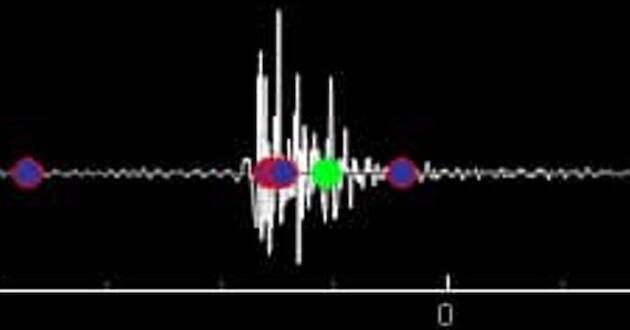It wasn’t Wormwood of Revelation but meteor rattling nerves over Pittsburgh

It wasn’t the Biblical “Wormwood,” a falling star described in Revelation, but a meteor over Pennsylvania Saturday definitely drew attention.
The New Year’s Day “shooting star” caused an earthshaking boom over suburban Pittsburgh and exploded in the atmosphere with an energy blast equivalent to an estimated 30 tons (27,216 kilograms) of TNT, officials now say.
NASA’s Meteor Watch social media site states a “reasonable assumption” of the speed of the meteor at about 45,000 mph (72,420 kph) would allow a “ballpark” estimate of its size as about a yard in diameter with a mass close to half a ton (454 kilograms).
READ: Where are the Seven Churches of Revelation now?
If not for the cloudy weather, NASA says, it would have been easily visible in the daytime sky—maybe about 100 times the brightness of the full moon.
A nearby infrasound station registered the blast wave from the meteor as it broke apart, enabling the estimates.

National Weather Service meteorologist Shannon Hefferan told the Tribune-Review that satellite data recorded a flash over Washington County shortly before 11:30 a.m. Saturday and officials believed it was due to a meteor “falling through the atmosphere.” Hefferan said a similar event occurred on Sept. 17 in Hardy County, West Virginia.
READ: NASA contradicts global “warming” with new data
Residents in South Hills and other areas reported hearing a loud noise and feeling their homes shaking and rattling. Allegheny County officials said they had confirmed that there was no seismic activity and no thunder and lightning.
Exploding meteors, also called airbursts, happen when a large chunk of space rock smashes into Earth’s dense atmosphere and disintegrates, reports NPR’s Catherine Whelan. One of the most dramatic airbursts in recent decades was the 2013 Chelyabinsk meteor, a house-size asteroid that briefly lit up the Russian sky brighter than the sun. If not for Pittsburgh’s cloudy weather that morning, the recent meteor explosion would have been easy to spot in the sky.
–Metro Voice








